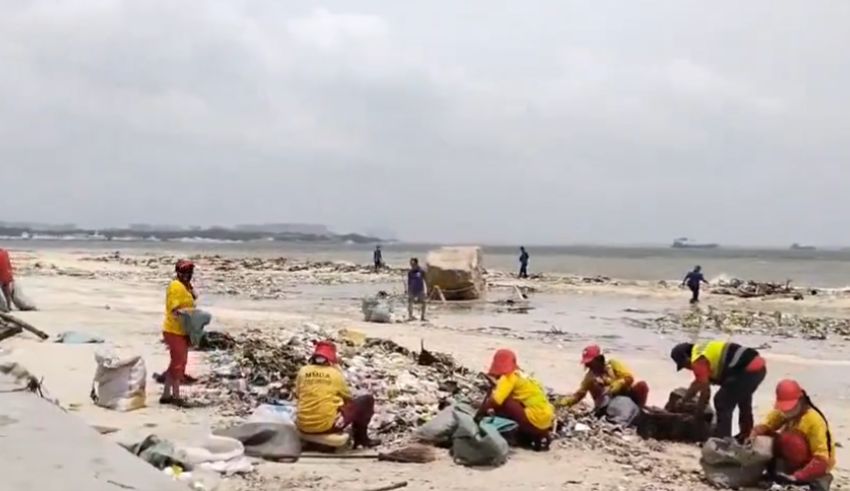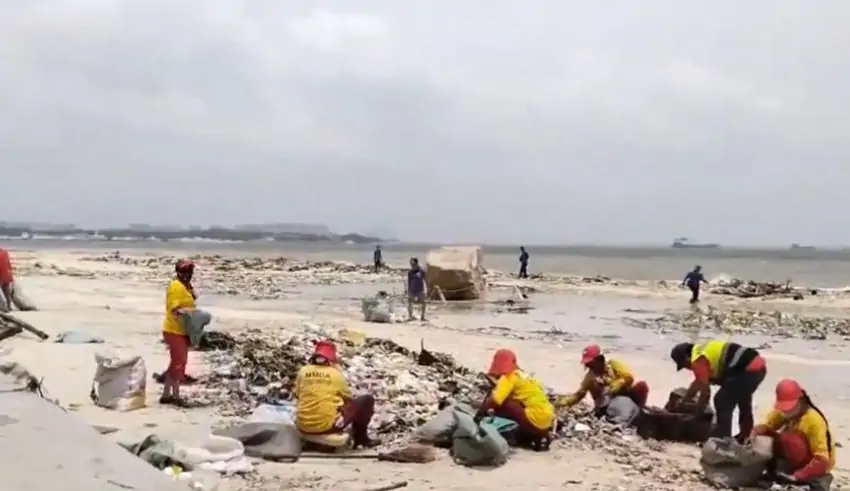

(C) MMDA
Super Typhoon Carina has once more exposed the Philippines’ sensitivity to highly unusual weather patterns. The terrible devastation done to infrastructure, agriculture, and life emphasizes how urgently a thorough review of disaster response plans and readiness is needed. A crucial question arises as the country recovers: is the main offender government neglect or the relentless power of climate change?
Typhoon history runs deep in the Philippines. Still, Carina’s destruction points to systematic catastrophe management breakdowns. A government unprepared to manage such disasters is shown by inadequate early warning systems, sluggish evacuation procedures, and a shortage of basic relief resources. Furthermore, the widespread corruption in many government departments sometimes devotes money meant for disaster readiness to other uses, therefore leaving communities exposed when a disaster comes.
Moreover, the typhoon’s effect has been worsened by the government’s slack enforcement of zoning rules and building norms. Structures meant to have survived the storm collapsed, killing many thousands of people. This emphasizes how urgently better application of safety rules is needed to stop similar tragedies from happening once more. Buildings in high-risk areas are prone to collapse during extreme weather events since they are built without strict attention to strong safety criteria. Furthermore underlined by the lack of sufficient infrastructure like storm shelters and flood control mechanisms is the weakness in the government’s disaster response mechanism.
Government inefficiency is clearly a factor, but equally indisputable is climate change‘s increasing frequency and intensity of typhoons. The new normal is higher sea levels, greater rain, and stronger storm surges. An archipelago, the Philippines is especially vulnerable to these effects. The science is unambiguous: greater storms are driven by warmer ocean temperatures; rising global temperatures raise the probability of extreme weather events.
Climate change is a humanitarian crisis rather than only an environmental one. The government has to admit how climate change aggravates disasters and include climate resilience into its development agenda. This covers supporting sustainable practices, creating climate-resilient infrastructure, and funding early warning systems. One should give mangrove replanting top importance since it can naturally prevent storm surges. Urban design similarly has to include green infrastructure to control flooding and lower heat islands.
Apart from a physical and financial catastrophe, Super Typhoon Carina left behind a great human sorrow. Families have split apart, homes ruined, and livelihoods gone. Many survivors suffer trauma, anxiety, and sadness, therefore the psychological effects on them are enormous. Though sometimes disregarded, the long-term psychological consequences of such events are quite important. Disaster response and recovery initiatives should include mental health support services since they guarantee that impacted people get the necessary treatment and help to reconstruct their life.
One must be careful not to let the trap of blaming the government or climate change define all the responsibility. These linked elements help to explain the Philippines’ susceptibility. The complicated problems presented by disasters need a comprehensive strategy.
Government mistakes in disaster management have to be answered for. It also has to acknowledge the pressing need of adjusting to the changing environment at the same moment. Improving governance and catastrophe readiness does not mean excluding investing in climate resilience. Actually, these are complimentary approaches to create a stronger country.
The Philippines depends on the worldwide community as well for support. This covers exchanging best practices in disaster management, financial aid for climate adaptation and catastrophe recovery, and worldwide collaboration to slow down climate change. The state of the Philippines serves as a sobering reminder of the need of quick and group effort to solve the climate issue.
Super Typhoon Carina serves as a sobering reminder that the Philippines is front lines of the climate issue. The government has to answer the challenge by putting in place thorough disaster management strategies and funding initiatives for climate adaption. This entails long-term resilience building in addition to quick reaction plans. For millions of people, their life depends on it.
The Philippines has to give sustainable development top priority, enforce strict building rules, and upgrade its disaster response system if it wants to properly solve the underlying reasons of vulnerability. National policies must incorporate initiatives for mitigating climate change as well as for adapting. The country can more resist the effects of upcoming typhoons and other extreme weather events by encouraging a culture of resilience and readiness.
The world has to move quickly as well to lower greenhouse gas emissions and assist underdeveloped nations in their efforts at adaptation. The battle against climate change falls on all of us; only by working together will we be able to hope to lessen its terrible consequences.
Singapore’s leading bus operator SBS Transit plans to start testing its innovative AI-braking system in early 2026. Working with Chinese…
The six attacks by ship sailing in the Singapore strait in five days this month has activated a spate increase…
A great relief for the global nations and the people of both the countries Indian & Pakistan as the massive…
The 2025 spy thriller ‘The Secret Path’ has captured international attention from the day of its premiere in April. This…
K-Pop has been a sensation in both the music and other entertainment industries across the world. Through their vibrant mix…
There are many genres in the web series of South Korean language, but the ‘psychological crime thriller’ will always have…
This website uses cookies.
Read More